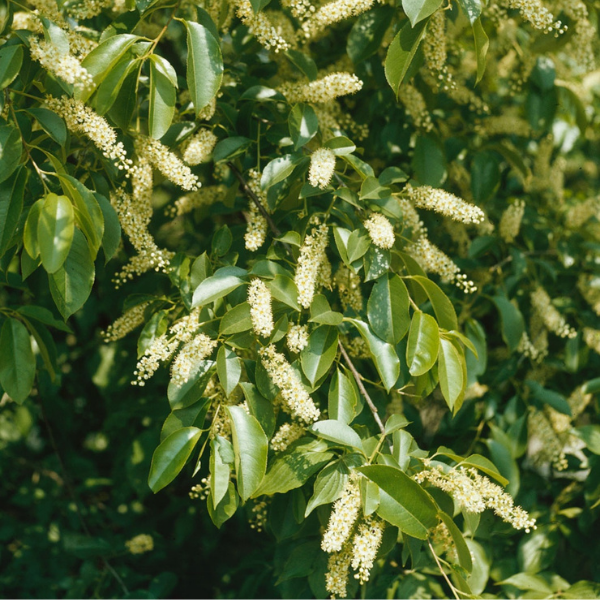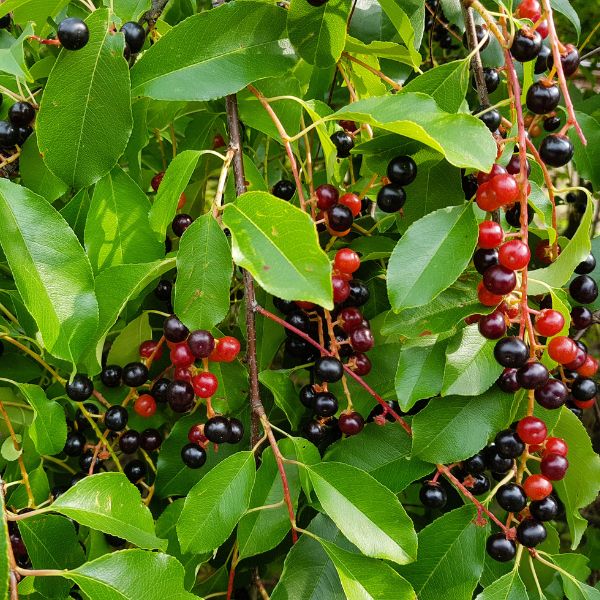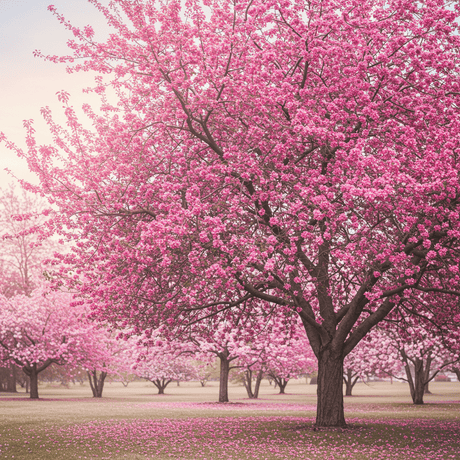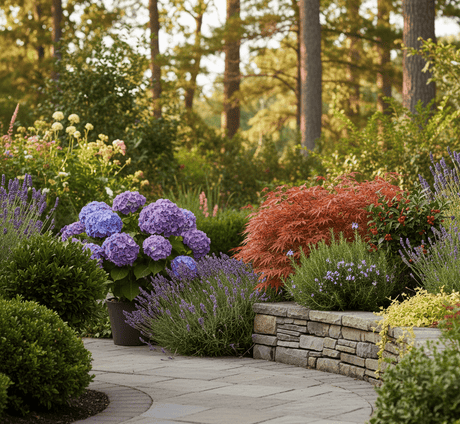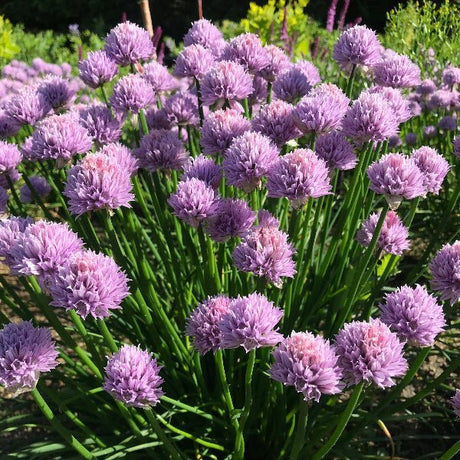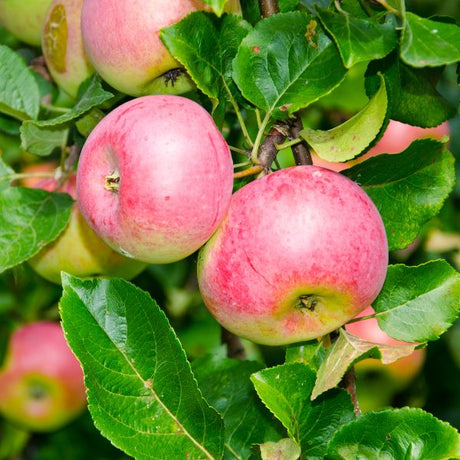Black Cherry Tree
Prunus serotina
- Stay Protected with Plant Sentry ™
Black Cherry Tree - #3 Container 2-3 Feet is backordered and will ship as soon as it is back in stock.
Plant Sentry™
Plant Sentry™

Plant Sentry™ Protected
Your order is protected by our compliance system that:
- Prevents restricted plants from shipping to your state
- Ensures plants meet your state's agricultural requirements
- Protects gardens from invasive pests and diseases
Delivery and Shipping
Delivery and Shipping
Delivery and Shipping
Fast, Safe Plant Delivery
Ships in 3-4 business days • Tracking provided • Weather protected
| Under $50 | $9.99 |
| $50 - $99.99 | $14.99 |
| $100 - $149.99 | $16.99 |
| $150 - $198.99 | $24.99 |
| $199+ | FREE |
✓ Zone-specific timing • ✓ Professional packaging • ✓ Health guarantee
Understanding Plant Options
Nature Hills offers plants in two main formats:
- Container Plants: Grown in pots with soil, sized by container volume and plant age
- Bare Root Plants: Dormant plants without soil, sized by height measurements
Container Plant Sizes
Container sizes indicate plant age and growing capacity rather than liquid volume equivalents. Our containers follow industry-standard nursery "trade gallon" specifications, which differ from standard liquid gallon measurements.
Young Plants (6 months to 18 months old)
| Container Size | Actual Volume | Metric Equivalent |
|---|---|---|
| 2" x 2" x 3" | 0.18 - 0.21 dry quarts | 0.20 - 0.23 dry liters |
| 4" Container | 0.31 - 0.87 dry quarts | 0.35 - 0.96 dry liters |
| 4.5" Container | 0.65 dry quarts | 0.72 dry liters |
| 6" Container | 1.4 dry quarts | 1.59 dry liters |
| 1 Quart | 1 dry quart | 1.1 dry liters |
| 5.5" Container | 1.89 dry quarts | 2.08 dry liters |
Established Plants (18 months to 2.5 years old)
| Container Size | Actual Volume | Metric Equivalent |
|---|---|---|
| 2 Quart | 2 dry quarts | 2.2 dry liters |
| #1 Container | 2.26 - 3.73 dry quarts | 2.49 - 4.11 dry liters |
| 5" x 5" x 12" | 3.5 - 4.3 dry quarts | 3.85 - 4.74 dry liters |
Mature Plants (2-4 years old)
| Container Size | Actual Volume | Metric Equivalent |
|---|---|---|
| #2 Container | 1.19 - 1.76 dry gallons | 5.24 - 7.75 dry liters |
| #3 Container | 2.15 - 2.76 dry gallons | 8.14 - 12.16 dry liters |
Large Plants (3-5 years old)
| Container Size | Actual Volume | Metric Equivalent |
|---|---|---|
| #5 Container | 2.92 - 4.62 dry gallons | 12.86 - 20.35 dry liters |
| #6 Container | 5.25 - 6.01 dry gallons | 23.12 - 26.42 dry liters |
| #7 Container | 5.98 - 6.53 dry gallons | 26.34 - 28.76 dry liters |
Bare Root Plants
Bare root plants are sold by height from the root system to the top of the plant. Plants may exceed minimum height requirements.
Common Sizes:
- Trees: 1 foot, 2 feet, 3 feet, 4 feet, 5 feet, 6 feet
- Shrubs & Perennials: 1 foot, 18 inches, 2 feet
Important Notes
Container Volume Specifications
- Trade Gallon Standard: Our containers follow industry-standard "trade gallon" specifications established by the American National Standards Institute (ANSI Z60.1) for nursery stock
- Volume Variations: Actual soil volume may vary due to plant root systems and growing medium settlement
- Age Indicators: Container size primarily indicates plant age and maturity rather than liquid volume equivalents
Growing Conditions
- Plant size can vary based on variety and growing conditions
- Container size helps indicate plant maturity and establishment level
- Larger containers generally mean more established root systems and faster landscape establishment
Seasonal Availability
- Bare root plants are available seasonally when dormant
- Container plants are available throughout the growing season
- Specific varieties may have limited availability in certain sizes
Questions?
For questions about specific plant sizes or availability, please contact our plant experts who can help you choose the right size for your landscape needs.
Plant Highlights
Black Cherry Tree highlights at a glance!
-
Botanical Name
-
Brand
-
Growing Zones3, 4, 5, 6, 7, 8, 9
-
Growth RateModerate
-
Mature Height
-
Mature Width
-
Leaf Color
-
Flower Color
-
Fall Color
-
Pollinator FriendlyYes
-
Pollinator Required
-
Bloom PeriodEarly Spring, Late Spring
-
FragrantYes
Characteristics
Where To Plant
When To Prune
- Late Winter
Water & Moisture Needs
- Moderate
Sunlight Needs
Soil Needs
- Well Drained Soil
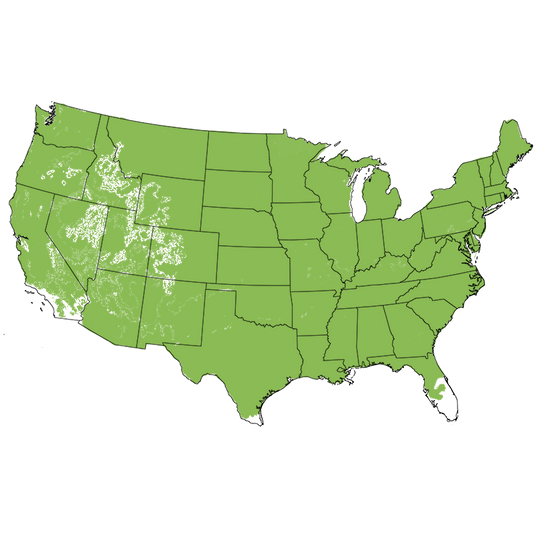
Growing Zones
Boost biodiversity and introduce native trees into your landscape to support wildlife and pollinators in your area! Native trees are well-adapted to your area and grow effortlessly! Trees like the native Black Cherry Tree (Prunus serotina) are magnificent shade trees and forest members!
The oval, spreading, pendulous limbs and arching branches become filled with drifts of long pollinator-friendly white flowers held in drooping, bottlebrush clusters against the glossy leaves. Black Cherry trees rank near the top of the list of bird-friendly trees because of the purple-black fruits that ripen in late summer (August - October). Hanging in long clusters, the birds will descend into your garden!
An edible ornamental and aromatic tree, the bruised foliage and bark have a distinctive cherry-like fragrance, while the fruit has a bitter flavor, but your songbirds won't care. Once fall arrives, the foliage transforms into a sublime yellow hue!
While the fruit is edible by humans too, they're best in beverages, cooking, and sweetened in jams and jelly. Plus Black Cherry has a ton of medicinal uses for wildcrafters and herbalists. Growing naturally throughout forests and woodlands of USDA hardiness zones 3 to 9, potentially reaching 50 - 80 feet in height and 30 - 60 feet in width.
Planting and Application:
Fast-growing Black Cherry Trees are wonderful front and backyard specimens and outdo your typical flowering trees with their addition of fruit and habitat! Highly ornamental in their own right, these tough natives put up with anything your garden can throw at them!
The thick branching can be pruned to any size or shape, but when left to grow naturally, you'll enjoy an impressive lawn tree, backyard shade tree, or lovely specimen planting. Use in groupings for woodland groves and to create easy wildlife habitat.
When used as more of a shrub with the lower branching intact, Black Cherry trees can be used in naturalized thickets, shelterbelts, and hedgerows while also enjoying lush screening for your property and edges of the woods!
- White Bottlebrush Spring Flowers
- Edible Red-Black Fruit - Jams, Jelly & Medicinal
- Pollinator Friendly Blooms & Bird-Friendly Food
- Lush Green Leaves, Strong Branching & Fragrant Wood/Foliage
- Specimen & Shade Trees, Naturalized Groupings & Habitat
#ProPlantTips for Care:
These fast-growing native trees need full sun for the most flowers and fruit. Plant in any kind of well-drained soil environment from neutral to alkaline. Add Nature Hills Root Booster for lifelong root support. Provide new trees with regular moisture, but once established, these trees are not so demanding. Top the soil with a 3-4 inch layer of mulch that helps hold in moisture and insulate the roots. Prune these native Cherry trees in the late winter or very early spring to correct shape or control size.
- Full Sun
- Well-Drained Soil - Highly Adaptable
- Moderate Moisture Needs
- Prune When Dormant
- Hardy Native Tree
The adaptable native Black Cherry Tree is a boon to your feathered friends, pollinators, wildlife and you and your family! Your landscape also benefits from the shade, beauty and ornamental fruit from this lovely tree! Order today at NatureHills.com and your native environment will thank you!

